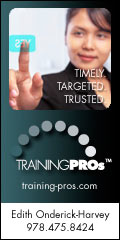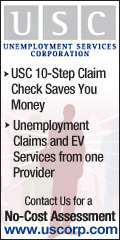NEHRA News
Northeast Human Resources Association
Payroll, of course, is only part of the issue. Employment contracts, benefit plans and compliance requirements also represent critical pieces of the employee experience. Finding, vetting and managing an experienced provider that can provide this comprehensive solution is difficult, and achieving this goal across multiple countries even more so.
Other requirements, including entity funding mechanisms, statutory (compulsory) benefits, and tax withholding and reporting requirements vary widely by country, a reality which can leave the headquartered (HQ) team scrambling to keep up. Companies must also track complicated leave formulas, understand local employment requirements and expectations, file health and welfare documentation and stay ahead of constantly changing legislation.
In many European countries, for example, vacation and sick leave must be tracked as part of the payroll process. In France, failure to do so likely will mean that upon termination, the Courts will rule that no vacation has been taken and full payout to compensate may ensue. In Italy, it is necessary to accrue a mandatory severance payment each month, which can create challenges with accounting. In many countries, additional 13th and 14th month holiday payments/bonuses have to be paid at certain times within the year. In the Netherlands, it is necessary to account for mandatory medical insurance contributions through payroll.
Other forms of compensation, such as the payroll administration and processing requirements relating to share-based compensation, including share options and stock grants, often require coordination between the parent and local entity to ensure that grants and/or exercises are correctly captured for reporting purposes and any taxation in relation to the compensation is correctly withheld within a specific time frame. Often, employees will have their salaries adjusted to take into account these events, which means finance and HR professionals should be clear on the process and impact to reduce employee dispute.
Though many countries are enacting laws that foster and encourage foreign investment and expansion, employment law reform in many countries has not kept pace. This is especially true in the developing world, where legacy laws can actually deter foreign firms both from entering local markets and hiring local and non-local employees. For instance, a foreign entity in China with a registered office (RO) cannot directly hire a Chinese local. Instead, the foreign company is required to use a Chinese staffing agency that hires the employee and then contracts the employee to the foreign entity. An alternative approach is to set up a wholly foreign owned enterprise (WFOE) subsidiary in China, which allows a foreign company to hire Chinese locals directly. The WFOE establishment process, however, requires challenging approvals and regulatory requirements that drive up both costs and delays.
With payroll processes so complex and country-specific, most companies expanding overseas immediately turn to their U.S. payroll provider for advice and assistance. Though some, but certainly not all, of these providers can offer services in certain countries, many aren’t willing to provide such services unless the number of employees is substantial. This can leave companies with smaller employee footprints (50 or less) at a disadvantage.
Without the assistance of an international payroll provider, many companies attempt to manage foreign payrolls on their own. They slog through the evaluation process to hire local providers, try to make sense of the confusing process for entity setup and registration, and try to figure out how to communicate with the foreign partner through language barriers and time zones. This process, especially for companies operating in more than one country, often consumes a disproportionate amount of the HQ team’s time. Even with all the time, energy and money spent, many CFOs and VPs of HR still find themselves thinking, "I don’t know what I don’t know."
The list of complications can certainly make a company think twice about taking the plunge into an international market. Some might even think the myriad of complications, along with the cost and potential risks, may not be worth the potential opportunities. However, despite the obstacles, international expansion is on the rise. According to a 2011 Business Journals study,1 nearly a quarter of American businesses said they are doing business overseas, and roughly 800,000 American companies—with fewer than 500 employees—owe part of their revenue stream to customers based in international locales.
In order to effectively capitalize on these opportunities overseas, companies must identify the right partners to maximize the opportunity and minimize the risk. They should try to find partners who are referred by trusted sources, such as their banking, accounting or legal service providers, a customer overseas, or personal or professional resources who may have expanded internationally before. Once the choices are narrowed down, finance and HR teams should trust but verify—check professional references, search the Internet for feedback and make note of comments, complaints and accolades. Doing due diligence on the provider upfront is critical to the long term success and the overall peace of mind of the executive team.
Regardless of the location a company selects for its international operations, best of breed international payroll providers should be able to do more than simply process the payroll. Rather, they should also be able to advise and assist with the all the mandatory and predictable activities that go along with supporting a local payroll, including:
- Entity Setup: Is the entity structure being considered able to be legally funded and make a local payroll? Most countries have a minimal type of entity structure required to process a legally compliant local payroll, but in many cases, something more substantive than the bare minimum should be considered due to potentially unintended consequences of one entity type versus another. Your payroll provider should be able to advise which entity type is best for your specific fact base, and assist with the set-up of the entity.
- Registration of Tax and Social Programs: Once the appropriate entity has been identified and the registration setup completed, there are follow-on registrations required to support a locally compliant payroll. Your payroll provider should be intimately familiar with employment requirements and legislation surrounding these issues.
- Benefits: Are the mandatory benefits and health and welfare programs structured properly? What other types of discretionary benefits beyond the bare minimum should be considered, and how can these be put in place? Is leave being accrued and accounted for in accordance with the country’s rules and regulations? Your payroll provider should be well-versed in how all of this works, and should be able to give you sound, practical advice.
- Support: If you experience a problem, need additional assistance with interpreting regulations for compliance or there is an error in a payroll, what resources are available? How much support will you receive before you have to bring in another resource outside of the payroll provider? Understanding the scope of the provider’s services is critical.
International payroll is the cornerstone of any successful overseas expansion, and "getting it right" is critical to employee satisfaction and overseas growth. While doing it yourself may prove less expensive in the near term, best-in-class companies are investing in developing partnerships with providers that can deliver comprehensive, scalable international business services and actionable advice across geographies, lifecycles and functions.
For MORE information on all topics related to Global HR, please click HERE for information on NEHRA's Upcoming Global HR Conference, "Beyond Borders: The Evolving Role of HR in a Global Marketplace," taking place on November 3rd at the Westin Waltham Hotel.
About the Author: Before joining Ciena, Larry held various senior executive positions, including serving as CFO of Omnia Communications, and as Corporate Controller at VideoServer, where he was hired to help complete the company’s successful IPO. Earlier in his career, Larry served as CFO for Replica Corporation and as a Senior Audit Manager and M&A Consultant at Ernst & Young in Boston. Frequently referenced as an expert resource for international trends in publications like The Wall Street Journal and CFO Magazine, Harding was named as a finalist for Ernst & Young’s Entrepreneur Of The Year® Award in 2010. He is also a past recipient of the Maryland World Trade Center Institute's annual International Business Leadership Award, which recognizes business executives whose creative influence has contributed to the global success of their companies. Larry, who became licensed as a CPA in Massachusetts, holds a Bachelor of Science in Economics, with a dual major in Finance and Accounting, from the Wharton School of the University of Pennsylvania. Selected Sources:
Prior to founding High Street Partners in 2004, Larry Harding served as Vice President of International Finance for Ciena Corporation, a multinational supplier of telecommunications equipment. In this position, he developed and implemented the financial, accounting and administrative functions for Ciena's international operations, which included 20+ overseas offices in Europe, Asia, and Latin America, providing support in specialized areas including currency risk management, global HR matters, and international logistics.
1. Kent Bernhard, "Want to Get Richer? Go International." The Business Journals, June 21, 2011.
If a manager wants to be a leader, he must develop the ability to coach others. It is core skill required of every successful manager in the 21st century. The days of command and control leadership as a standard way of managing people are long gone. Coaching and collaboration have taken over as the most effective way for managers to lead. If managers do not become skilled at coaching their employees, it is unlikely that they will be able to achieve sustainable long-term positive results for themselves or their organizations.
Coaching requires both skill and time. But, before one applies either of these, managers should understand what coaching is and why it is important. In its simplest form, coaching is the act of helping others to perform better. Sometimes it is focused on helping to correct poor performance or improve existing skills. At other times, it’s targeted at developing entirely new skills. Whichever the case, it is important because good coaching by managers will accelerate the development of employees and lift their organizations to higher levels of achievement.
So, why don’t all managers coach? Most likely due to one of three major reasons: (1) they don’t understand the value or importance of coaching; (2) they don’t possess the skills to coach others; or (3) even if they understand the importance and have the skills, they don’t have the time. To overcome these barriers and transform your managers into coaches there are five things that you can do to foster change.
1. Build the personal case for coaching. You can’t force coaching responsibilities on managers who don’t see its relevance. While most managers have a strong sense of loyalty to their organization that alone may not be enough to motivate them to develop their coaching skills. There is still an element WIIFM (what’s in it for me) that must be addressed in building the case with most managers. When you point out the fact that the strongest leaders and most successful executives in their organization and/or discipline are also excellent coaches (this is almost always the case), they will be more inclined to seize the opportunity to learn how to become an effective coach. Once the managers understand that they can get more done and achieve stronger results through the efforts of others, they will want to learn how coaching, not command and control, will enable them to better leverage the talents of their employees. Whether they are just trying to do a better job for their employer or seeking to promote their own careers, managers will embrace coaching as an effective means to a mutually beneficial result.
2. Establish some firm expectations. Making it clear that coaching is a primary responsibility of each manager in your organization is an essential prerequisite to creating a coaching organization. If you don’t establish firm expectations around coaching, you are unlikely to get the results you want. Coaching should be a key element in your organization’s culture and part of every manager’s job description. Coaching requires skill and time. Enabling managers the opportunity to develop the skills and allocating the time for them to both learn and apply their skills should be incorporated into every organization’s operating model. It should be a topic of discussion at every performance management evaluation and highlighted when managers are promoted or assigned to new roles.
3. Teach coaching skills and put them to practice. Coaching does not necessarily come naturally to most managers. In fact, before they become managers, employees are generally rewarded for their individual skills and their ability to get tasks done on their own or in small teams. So, the appointment to a manager role can represent a significant and sometimes difficult shift in both what the manager does and how he allocates his time. Core coaching skills such as listening, questioning, observing, building rapport, constructive analysis and feedback, empathy, supportive encouragement and holding others accountable are all skills that can be enhanced or taught in a variety of formats. Whether it is in workshops, mentoring relationships or simply modeling those who are strong coaches, managers can improve their knowledge and understanding of coaching skills. But they need to be able to put the skills to use in real-time situations. This means allocating the time to practice these skills when coachable moments occur. If also means creating coachable moments or situations. When managers delegate tasks or responsibilities to direct reports, they create a coaching opportunities by default. Delegation is a powerful management tool and a powerful vehicle for practicing and developing one’s coaching skills.
4. Give a manager a coach. There is no more effective means for learning than through hands-on experience. Therefore, if you want to transform a manager into a coach, it’s a good idea to give them the opportunity to experience coaching first hand. Having a manager coached by another executive in your organization will accomplish two things. It will enable the manager to experience the benefits of coaching and become more committed to coaching as a method for developing others. It will also provide a model of how to provide coaching for others. If you don’t have skilled coaches within your organization, you should consider hiring third-party external coaches to work with your key managers.
5. Reward the best coaches with the best jobs. This should not be a stretch. The managers who demonstrate the strongest coaching skills are likely to be the strongest performers. As such, they should be candidates for the most important manager and executive roles in the organization. Placing these managers in the most important roles and crediting these assignments, at least in part, to their excellent coaching skills will send a strong message to the rest of the organization that coaching is a critical skill for all managers.
These are just five of the steps you can take to accelerate the transformation of managers into coaches and to turn your organization into a coaching organization. The benefits will accrue to both the individual managers in terms of their own career advancement and to the overall organization in terms of the enhanced collaboration and stronger performance. In many organizations the evidence is compelling. Many have discovered that their strongest managers are also their strongest coaches. In fact, the VP of Global Executive Development, Tanya Clemens, has stated, "We have done lots of research . . . and we have found that the leaders who have the best coaching skills have better business results." When managers become aware of these types of outcomes, they will be motivated to begin their own transformation.
About the Author:
Mike Noble is a Managing Partner at Camden Consulting Group (www.camdenconsulting.com), a consulting firm that provides focused, practical, customized and integrated human capital management, leadership development, executive coaching and training services to organizations and their employees. Noble oversees all of the firm's strategic business development activities and client engagements.
The Fall event is the NSHMBA Career Fair on September 24, 2011
at the Holt International Business School in Cambridge, MA.
NEHRA will be creating a panel of HR professionals to help Career Fair attendees answer the following:
If you are interested in becoming involved and supporting our volunteer efforts
with your knowledge and experience, please contact Carole by September 9, 2011:
Carole Edson, Director of Membership
Email: cedson@nehra.com
Phone: 781-239-8705
The John D. Erdlen Scholarship is awarded to the outstanding scholarship applicant. The scholarship is for $3,000 is awarded to a full-time undergraduate or graduate student at an accredited college or university. In addition to the award the recipient also receives a one-year NEHRA student membership. The Erdlen Scholarship can be received by a previous scholarship winner.
The Future Stars in HR Scholarship is awarded each year to a deserving full-time undergraduate or graduate student at an accredited college or university preparing for a career in human resources. This award is in the amount of $2,500.
Application information is available by CLICKING HERE. All applications and required attachments must be received at the NEHRA office no later than September 6, 2011. Final applicants will be interviewed by the NEHRA College Relations Committee and winner will receive their award at the NEHRA Annual Awards Breakfast on September 22, 2011.
Applications should be sent to:
Northeast Human Resources Association
Future Stars in HR Scholarship Awards
303 Wyman Street, Suite 285
Waltham, MA 02451
It will also ensure that your information is correct in the Member Directory. Once you log in, go to the "About NEHRA" tab and select Membership Directory and then click on Update my Membership Profile.
While you are updating your profile, you might want to consider joining one of the Community Forums or adding your name to one of the Listservs. An updated profile and connecting to one of the NEHRA Communities is a great way to maximize your membership and create your personal network.
If you need help with this process please do not hesitate to contact Carole Edson, Director of Membership, at cedson@nehra.com.
- To become a fan of NEHRA on Facebook, CLICK HERE.
- If you are already a member of LinkedIn, CLICK HERE to join the NEHRA LinkedIn Community!
If you are not already a member of LinkedIn, you will need to follow the easy steps to create your profile. Once your profile is completed you can follow the steps below to become a member of the Northeast Human Resources Group.
- Find the tab for "Groups" on your home page and select "Group Directory."
- Use the search function in the upper right and type in "Northeast Human Resources Association."
- Click on "Join this Group."
- This will bring you to a description of the group and you will be asked to make selections about your preferences for display the group logo on your personal page.
- Enter a contact email address, a digest e-mail address, delivery frequency, announcements and messages.
- Once you have made these choices click the button "Join Group."
- Your message will come to the NEHRA Group Administrator to verify membership and approve you for the group.
To Join a Community Forum Subgroup on LinkedIn
- Once you are a member of the Northeast Human Resources Group, select "Subgroups."
- Select all the groups you are interested in joining.
- Your request goes to the NEHRA Group Administrator for approval.
- You will receive a message that you are a member of this subgroup and you can begin to read and post information on the Subgroup page.
Current NEHRA Subgroups
- Learning and Development Community Forum
- Diversity and Inclusion Community Forum
- Consultants Community Forum
- Small Business HR Community Forum
- HR Technology Community Forum
- Talent Acquisition Community Forum
- Flexible Workplaces Community Forum
For more information or to sign up for this opportunity, contact the NEHRA office today at (781) 235-2900 or via email at info@nehra.com.



